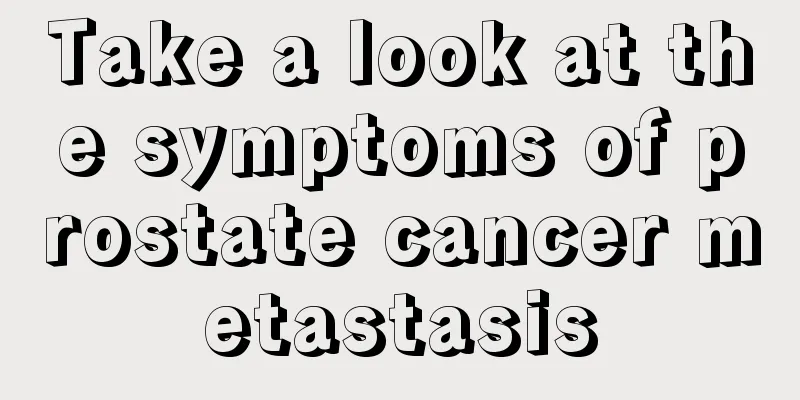Nursing rounds for metastasis of nasopharyngeal carcinoma after radiotherapy and chemotherapy

|
Radiotherapy has many side effects, such as mucosal damage, bone marrow suppression, leukopenia, etc. Side effects related to malnutrition include: head and neck radiotherapy damages taste cells, causing taste loss or disappearance, resulting in loss of appetite; after radiotherapy in the oral cavity, esophagus, gastrointestinal tract and other parts, mucosal congestion, edema, and subsequent erosion, resulting in dysphagia, nausea and vomiting, diarrhea, blood in the stool, and a few patients may develop digestive tract perforation ;At the same time, it can inhibit the secretion of gastric acid and various proteases, reduce gastrointestinal digestive function and may not cause the loss of electrolytes, etc.For the above reasons, diet adjustment is very important during and after radiotherapy for NPC. Generally, patients should be given liquid or semi-liquid food, and the amount and frequency should be adjusted according to the patient's condition. Do not force them. For patients with poor diet, intravenous high nutrition can be given to supplement the severe consumption in the body. Especially for patients with nasopharyngeal carcinoma during radiotherapy and chemotherapy, dry mouth and throat, loss of appetite, nausea and vomiting often occur. Traditional Chinese medicine believes that this is due to deficiency of qi and yin and excessive heat and toxicity. Spicy, dry, hot and toxic foods should be avoided. The diet after radiotherapy for nasopharyngeal carcinoma should be light, and food that is easy to digest, nutritious and delicious should be selected. The common recipes and preparation methods for the diet after radiotherapy for nasopharyngeal carcinoma are as follows: 1. Fig stewed meat: 120g fresh figs (60g dried figs), 120g lean pork, wash and cut into pieces, add appropriate amount of water and seasoning into the pot, cook until the meat is tender, drink the soup and eat the meat. It can treat dry mouth and sore throat after radiotherapy for nasopharyngeal carcinoma, and has the effects of strengthening the spleen and stomach, reducing swelling and detoxification. 2. Chinese Yam and Lotus Seed Soup: 30g Chinese Yam, 30g Lotus Seed (without core), 30g Coix Seed, add appropriate amount of water, simmer until cooked, add a little sugar, take once a day, unlimited amount, take for 15 days. It is used to treat nasopharyngeal cancer of all stages with spleen deficiency, and has the effect of strengthening spleen and replenishing qi, clearing the heart and calming the mind. 3. Yangjin Drink: 50g each of dried pear and reed root, 25g each of Radix Trichosanthis, Scrophulariae, and Shepherd's Purse, 15g each of Radix Ophiopogonis, Radix Rehmanniae, and Platycodon grandiflorum, and 20g of Chrysanthemum morifolium. Decoction together, remove the residue, and take the juice. Take once a day, divided into 2 doses. It can treat nasopharyngeal cancer patients with fluid deficiency and dry mouth and tongue. It has the effects of nourishing yin, promoting fluid production, cooling blood, and relieving sore throat. |
<<: Complications of radiotherapy for nasopharyngeal carcinoma
>>: What is the survival rate of stage IV nasopharyngeal carcinoma?
Recommend
How to reduce inflammation and sterilize the anus
In fact, in our daily life, we often neglect anal...
What are the clinical symptoms of early prostate cancer
I believe that there are still many people who do...
Causes of age spots on the face
What is the reason for age spots on the face? Fri...
Lack of exercise makes your hair gray, several unexpected causes of gray hair
Some people say that gray hair is a symbol of lif...
Can I still drink yogurt if it's left overnight?
We can drink yogurt as a drink in our daily life,...
What should I do if my legs feel sore after exercise?
Exercise is a very important activity in life. It...
What nutrients does the human body need?
The human body needs a lot of nutrients, and thes...
Can bone cancer be diagnosed with routine blood tests?
Bone cancer is a malignant tumor that originates ...
How to clean resin oil
Resin oil is a sticky and black substance, genera...
Let me show you why colorectal cancer only affects Chinese people?
Colorectal cancer can be said to be the most easi...
How long can ginger be kept
We often use ginger when cooking. It is a very im...
How to prevent polyps from turning into colon cancer
Various chronic intestinal diseases, such as ulce...
What are the dangers of sheep head meat?
In daily life, mutton head is a relatively common...
The difference between one shot and three shots of cervical cancer vaccine
Whether it is a bivalent, quadrivalent or nine-va...
How to treat oily face
The weather is getting hotter and hotter. We swea...









